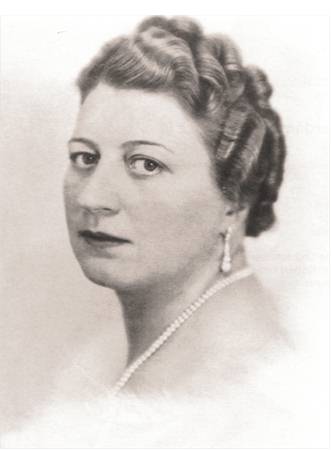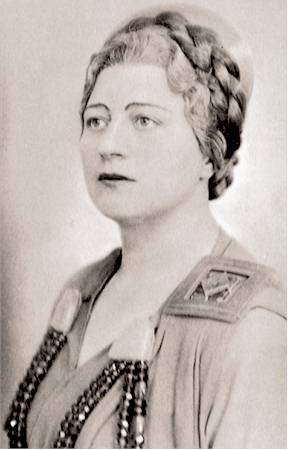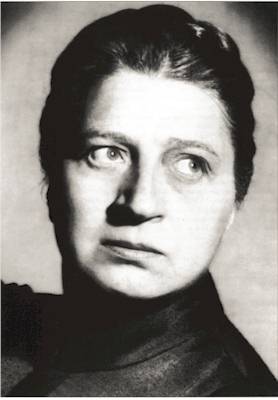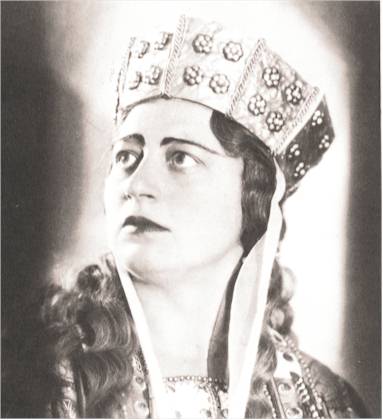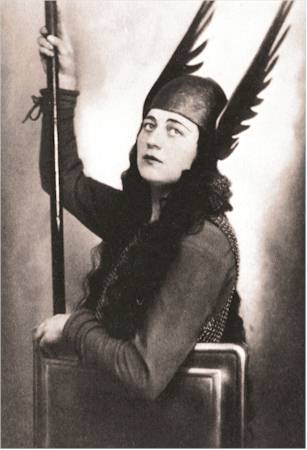German contralto, 1902 - 1968
Biographical notes:
She was born in Berlin. She early lost her father and was soon forced to earn her living (she worked as a secretary). But she always enjoyed singing. An office colleague, noticed her talent
and advised her to audition at the local conservatory. The directors of the conservatory Klindworth-Scharwenka immediately recognized her outstanding ability. During the next five
years she devoted herself to intensive and careful studies. In 1926 she was engaged at the opera in Ulm where she sang an astonishing variety of roles. She also sang operetta. Her debut was the
gypsy girl Manja in “Gräfin Maritza,” the next role was Azucena! She was engaged to Mannheim where she sang the big mezzo and contralto roles. In 1931 she made her debut at the Berlin State
Opera (Azucena). Wilhelm Furtwängler conducted Elektra in which she was an acclaimed Klytämnestra. She also sang Ortrud under Erich Kleiber and Adriano in Rienzi with Leo Blech.
From the start Margarete Klose expanded her repertory including Lieder and oratorio parts. Her rendition of the contralto solos in Bach’s b-minor Bass, St. Matthew Passion, Messiah and Missa
solemnis were regarded as exemplary not only from a vocal but also stylistic point of view. Guest appearances took her to Vienna, London, Hamburg, Dresden, Munich, Brussels and Budapest. At
La Scala she sang Brangäne under de Sabata. In 1936 she made her début at the Bayreuth Festival where she sang all the great roles of her vocal category. She also sang the Italian
repertoire (Eboli, Amneris, Ulrica). In 1961 she made her farewell appearance and started giving vocal tuition. She held master classes every summer in the Salzburg Mozarteum. She died unexpectedly in 1968.
As Fricka
As Brangäne
Margarete Klose as Kostelnicka in Jenufa, Städtische Oper Berlin, 1949
As Ortrud
As Waltraute Comment: I agree with Clemens Höslinger that Klose’s recordings are among the most beautiful and
treasured in the history of the gramophone. Her voice was of a heartwarming sheen and “pathos.” Some of her recordings (Carmen, Verdi) will not be to everybody’s taste because of the rather “pathetic” style.
I particularly adore her in Wagner’s music, as Fricka, Waltraute, Ortrud and Brangäne. She was considered THE great Wagner mezzo-soprano (contralto) in the 1930/40s besides Karin Branzell and She was a wonderful oratorio singer, full of pathos, warmth and dignity.
She was at her very best in songs, and luckily, she made a number of invaluable lieder recordings. Her interpretations of Brahms, Franz, Schubert and Schumann songs are true treasures.
Margarete Klose and Maria Müller in Gluck’s “Orfeo”, Berlin State Opera, 1937
As Eboli
|
|||||||||||||||||||||||||||||||||||||||||||||||||||||||||||||||||||||||
